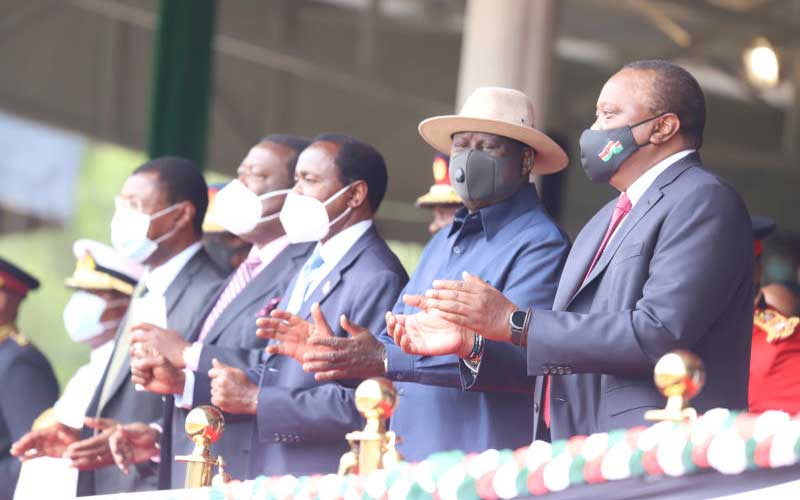×
The Standard e-Paper
Fearless, Trusted News

From right: President Uhuru Kenyatta, Raila Odinga, Kalonzo Musyoka, Musalia Mudavadi and Moses Wetang’ula during Mashujaa Day celebrations on October 20, at Gusii stadium. [File, Standard]
The proposal in the Building Bridges Initiative (BBI) report to have a prime minister and two deputies could see a number of MPs face off with political heavyweights eyeing the position in 2022.